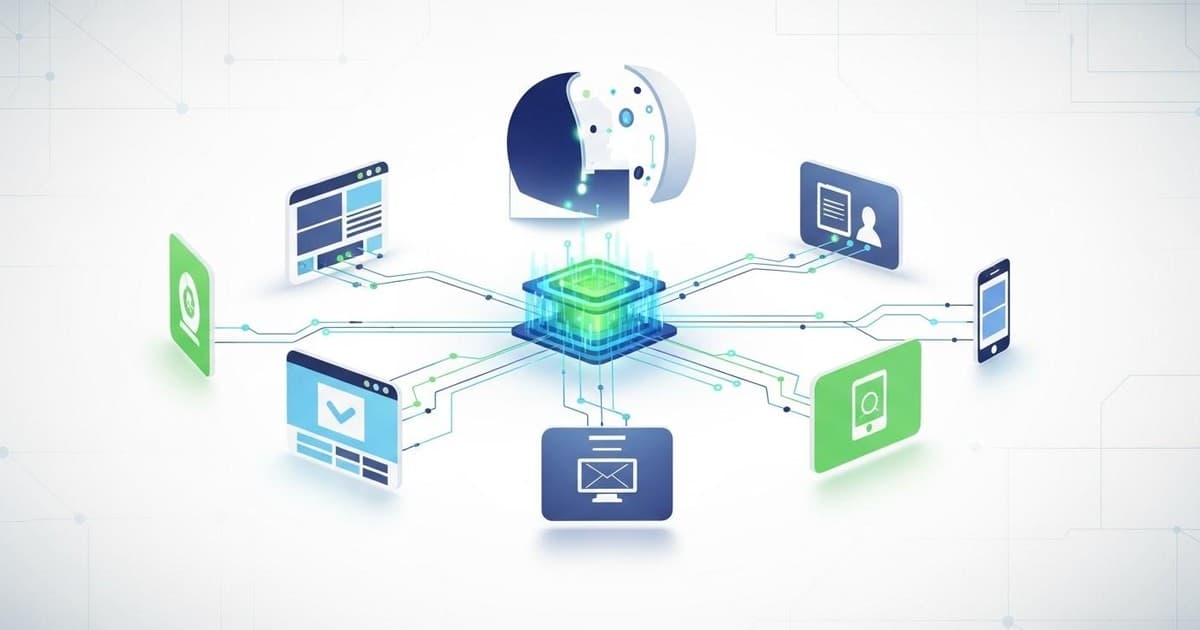
What to Ask Your Headless CMS Vendor
Choosing the right headless CMS vendor requires asking strategic questions that reveal whether their platform can truly scale with your business needs, support your technical requirements, and deliver the performance your team demands. The wrong choice can cost months of development time and thousands in migration expenses, while the right vendor becomes a cornerstone of your content infrastructure.
The headless CMS market has exploded with options, each promising to solve your content management challenges. Unlike traditional content management systems that tightly couple the content creation interface with the presentation layer, a headless CMS separates these concerns entirely. This architecture gives developers complete freedom to build custom front-end experiences while content creators work within a familiar editing environment.
This separation creates powerful opportunities for businesses that need to deliver content across multiple channels, from websites and mobile apps to digital signage and IoT devices. However, it also means that choosing a headless CMS requires evaluating both technical capabilities and business considerations that traditional CMS buyers never had to consider.
Essential Questions Before Vendor Conversations Begin

Before you schedule your first vendor demo, spend time answering critical questions about your own requirements. This internal assessment prevents you from being swayed by impressive features that don't align with your actual needs.
Start by defining your primary use cases with specificity. Are you building a marketing website that needs frequent updates, an e-commerce platform with complex product catalogs, or a mobile app that requires real-time content synchronization? Each scenario demands different capabilities from your headless CMS, and understanding your priorities helps you ask more targeted questions during vendor conversations.
Consider who will actually use the system daily. Developers need robust APIs and flexible content modeling, while content editors require intuitive interfaces and efficient workflows. Marketing teams might prioritize SEO features and analytics integration, while enterprise organizations often need advanced user permissions and audit trails. Centralized content management becomes crucial when multiple teams collaborate on content creation and distribution.
Your current and future technology stack significantly impacts vendor selection. If your development team works primarily with React and Next.js, you'll want a CMS with excellent JavaScript SDKs and strong community support for these frameworks. Companies planning to expand internationally need robust localization features, while those in regulated industries must prioritize security certifications and compliance capabilities.
Budget considerations extend beyond monthly subscription fees. Factor in development time for initial setup, ongoing maintenance costs, and potential overage charges as your content volume grows. Some vendors charge per API call, others per user, and some use hybrid models that can become expensive as you scale.
Technical Deep Dive Questions That Matter

The technical foundation of your headless CMS determines how smoothly your development team can build and maintain your digital experiences. Start by understanding the vendor's API offerings in detail. While most modern headless CMS platforms offer both REST and GraphQL APIs, the quality and comprehensiveness of these APIs varies dramatically.
Ask to see actual API documentation during your demo, not just marketing materials about API availability. Well-maintained documentation includes code examples, clear error handling guidance, and regular updates that reflect new features. Request information about API rate limits and how they're enforced, as these constraints can significantly impact your application's performance during traffic spikes.
Content modeling flexibility separates enterprise-ready platforms from basic solutions. Your vendor should demonstrate how you can create custom field types, establish complex relationships between content pieces, and build reusable content components. This flexibility becomes crucial as your content strategy evolves and your team needs to create new content types without developer intervention.
Migration capabilities deserve special attention if you're moving from an existing system. Ask about automated migration tools, data mapping assistance, and how the vendor handles content relationships during the transfer process. Some platforms excel at migrating from specific systems like WordPress or Drupal, while others provide more generic import tools that require additional development work.
Development workflow support can make or break your team's productivity. Modern headless CMS platforms should provide command-line interfaces for local development, comprehensive webhook systems for triggering builds and automations, and robust environment management for development, staging, and production deployments. Startup-focused CMS solutions often prioritize rapid deployment capabilities that help teams launch faster.
Content Team Experience and Workflow Optimization

The most technically sophisticated headless CMS becomes worthless if your content team struggles to use it effectively. Request live demonstrations of the content authoring interface, paying attention to how intuitive the experience feels for non-technical users. The best platforms balance powerful features with user-friendly design, allowing content creators to focus on their work rather than fighting with the interface.
Visual editing capabilities have become increasingly important as content teams expect WYSIWYG experiences similar to traditional CMS platforms. Ask how the vendor's visual editor integrates with your front-end framework and whether it supports real-time preview functionality. Some platforms offer sophisticated visual editing that works seamlessly with custom React components, while others provide basic preview capabilities that may not reflect your actual site design.
Workflow and collaboration features become critical as teams grow beyond a few content creators. Investigate the platform's content approval processes, user role granularity, and version history capabilities. Enterprise organizations often need complex approval workflows where content moves through multiple review stages before publication, while smaller teams might prefer simpler draft-to-published workflows.
Internationalization support varies significantly between vendors, even among those that claim to support multi-language content. Ask specific questions about how the platform handles content translation workflows, whether it integrates with professional translation services, and how it manages content relationships across different language versions. Some platforms treat each language as completely separate content, while others maintain sophisticated relationships that make managing multilingual content much easier.
Digital asset management capabilities often get overlooked during vendor evaluation, but they become crucial as your content library grows. Understand how the platform handles image optimization, whether it provides built-in CDN integration, and how it manages asset relationships with content pieces. Advanced platforms offer automatic image optimization, smart cropping, and integration with external DAM systems for enterprise-scale asset management.
Business Considerations and Long-term Partnership Evaluation

Pricing transparency reveals a lot about how a vendor operates and whether they'll be a reliable long-term partner. Request detailed explanations of their pricing model, including what metrics they use for billing and how costs change as you scale. Be particularly wary of vendors who can't provide clear answers about overage fees or who use complex pricing structures that make it difficult to predict future costs.
Support quality becomes crucial when you encounter issues or need guidance on best practices. Ask about support response times, escalation procedures, and whether technical support includes architectural guidance or just troubleshooting. The best vendors provide comprehensive onboarding processes that help your team succeed from day one, rather than simply providing access credentials and basic documentation.
Security and compliance capabilities are non-negotiable for many organizations. Understand what certifications the vendor maintains, how they handle data encryption, and what compliance frameworks they support. Companies in healthcare, finance, or other regulated industries need vendors who understand their specific compliance requirements and can provide necessary documentation for audits.
Vendor stability and roadmap transparency help you evaluate whether this partnership will support your long-term goals. Ask about the company's funding situation, customer growth, and product development priorities. Established vendors should be willing to share high-level roadmap information and discuss how they gather customer feedback for product development decisions.
Integration ecosystem strength determines how well the headless CMS will work with your existing tools and future technology choices. Evaluate the vendor's marketplace of third-party integrations, their partnerships with major platforms, and their approach to custom integrations. SEO optimization capabilities often depend on how well the CMS integrates with analytics tools and marketing automation platforms.
Performance and reliability guarantees should include specific uptime commitments, global CDN availability, and architecture details about how the platform handles traffic spikes. Request information about their disaster recovery procedures and data backup policies, as these become critical when your content infrastructure supports business-critical applications.
The evaluation process shouldn't end with vendor presentations and feature comparisons. Create a structured scorecard based on your priorities, weight different criteria according to their importance to your specific use case, and consider conducting proof-of-concept projects with your top candidates. This hands-on evaluation reveals how well each platform actually works with your content and development workflows.
Watch for red flags during the evaluation process, including vendors who provide vague answers to technical questions, those with overly complex pricing that makes cost prediction difficult, or companies that can't demonstrate strong customer support practices. The best headless CMS vendors combine technical excellence with business reliability, creating partnerships that support your growth rather than constraining it.
Your headless CMS choice will influence your content operations for years to come. By asking the right questions and conducting thorough evaluations, you can identify a vendor who not only meets your current needs but also provides the foundation for future growth and innovation. The investment in a comprehensive evaluation process pays dividends through improved team productivity, better content performance, and reduced technical debt as your organization scales.
For additional guidance on vendor evaluation, consider downloading comprehensive checklists that can help structure your evaluation process and ensure you don't overlook critical considerations during vendor selection.
